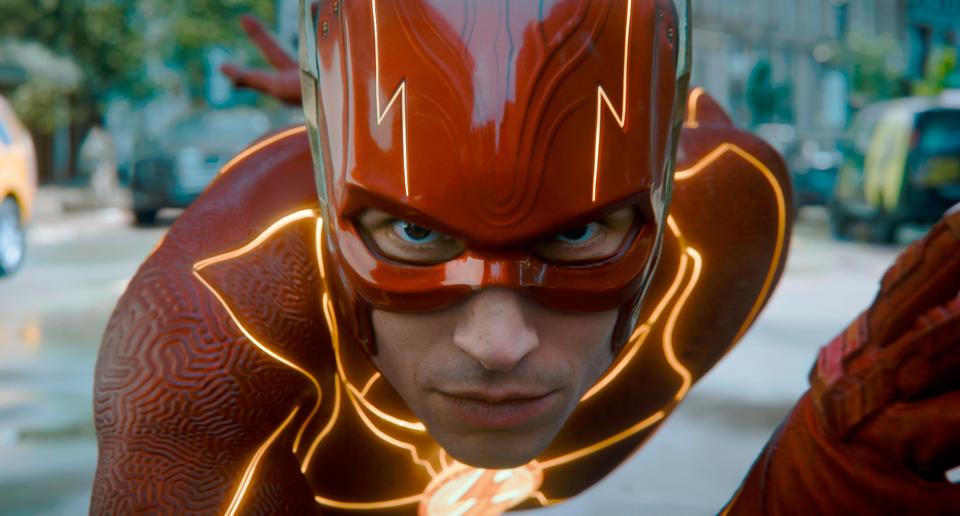What to read this week: Marvel's tailspin; 'the blood of children'; and eating at Melba's
- Oops!Something went wrong.Please try again later.
TL; DR.
You know the deal: too long, didn’t read. But what if it was long and you read it anyway? There are some really good stories floating around out there in the vast expanse of the internet, but ferreting out the ones that are worth the read is even more difficult than sorting through all the streaming options. (Pro tip: Start with Season 2 of “The Bear.”)
I’m here to help.
My job requires me to search through lots of publications every day. Sure, there’s a lot of dreck out there, but there’s also some really great writing, insightful and entertaining stuff that is easy to lose in the shuffle. The most fun a critic has is sharing something great that might be overlooked — and once you share it with people, then you’ve got someone to talk about it with. That’s what I’ll do here.
Every week, I'm sharing three stories that, for whatever reason, appealed to me, and that I think would appeal to other people, too. This is not the place where you’ll find me saying the Chris Licht profile in The Atlantic was overrated. It wasn’t. It was one of the best stories in months.
Mainstream media will be represented here along with smaller publications, niche outlets, anything that publishes cool stories. Because that’s what I’m looking for and that’s what I want to share. And if you’ve got some good ones, you share, too.
‘A Star Reporter’s Break with Reality’ — The Atlantic
Lara Logan was a rising star among TV journalists. Now she peddles conspiracy theories so lurid and nonsensical — “Logan declared that ‘the open border is Satan’s way of taking control of the world’ and that the global elite ‘want us eating insects’ while they ‘dine on the blood of children’” — that even far-right Newsmax won’t have anything to do with her.
Elaina Plott Calabro writes in The Atlantic about how personal trauma and professional mistakes, among other things, led Logan to destroy her career amid increasingly strange behavior. Sometimes, stories about people who go off the rails are maddening. This one is sad and compelling.
Where to read it: July/August 2023 print edition or online at theatlantic.com/magazine/archive/2023/07/lara-logan-60-minutes-correspondent-conspiracy-theories/674168/
‘Melba’s Contains Multitudes’ — The Bitter Southerner
A good lede — that’s journalism jargon for the first sentence of a story that ideally hooks a reader — is usually the most important tool a writer has. If it’s boring, no one’s going to read much further unless they’re related, and even then it’s a risk.
Rien Fertel’s lede in The Bitter Southerner is a good one: “Attending a book signing at Melba’s in New Orleans can feel a little like going to see ‘Macbeth’ at a NASCAR track. You might find yourself asking if you’re in the right place. It’s the bright blue building in the deadman’s curve at the crossroads of Elysian Fields and North Claiborne avenues, next to the AutoZone. You can’t miss it. Covered in more flashing neon than the Superdome: Eat at Melba’s OPEN 24 HOURS 30 Shrimp Guaranteed!”
Fertel goes on to chronicle Melba’s, a combination bookstore and restaurant with a unique selling point: “Buy lunch, get a free copy from that day’s visiting author — that’s the deal. The nonprofit program is called Eat and Read at Melba’s. It’s literacy for lunch. Roast beef po’boy — free book. Boiled crawfish, when in season — free book. Stuffed bell pepper with a side of turkey necks — free book.
The Bitter Southerner “exists to explore, from every possible angle, the duality of the Southern thing.” In this story, it certainly succeeds. It's a food story — "The po’boy contains multitudes" — as well as a story about food history, literary inclusion in the South and more. That's a full plate.
Where to read it: Online at bittersoutherner.com/feature/2023/melbas-contains-multitudes-new-orleans-jane-wolfe
‘How the Marvel Cinematic Universe Swallowed Hollywood’ — The New Yorker

“The Flash” isn’t a Marvel movie, but it is a superhero one, and its lackluster box office points to something people were already talking about: Audiences might be getting tired of these kinds of films.
Michael Schulman, in an exhaustively detailed story about Marvel movies, looks at how we got here. The whole thing’s good, but I don’t know if I’ve even seen the Marvel formula boiled down better than this: “There’s the climactic C.G.I. slugfest, often pitting a good iron man against a bad iron man, or a good dragon against a bad dragon, or a good witch against a bad witch. There’s the self-referential shtick, the interchangeable villains. There are presumed-dead characters who reappear, as on a soap opera. Most plots boil down to ‘Keep glowy thing away from bad guy,’ and the stakes are nothing less than the fate of the world, which come to feel like no stakes at all.”
Wish I’d said that.
Where to read it: The New Yorker, June 12, 2023, print edition or online atnewyorker.com/magazine/2023/06/12/how-the-marvel-cinematic-universe-swallowed-hollywood
Reach Goodykoontz at bill.goodykoontz@arizonarepublic.com. Facebook: facebook.com/GoodyOnFilm. Twitter: @goodyk.
Subscribe to azcentral.com today. What are you waiting for?
This article originally appeared on Arizona Republic: What to read now: Losing Lara Logan, a Marvel fail, lunch at Melba's

